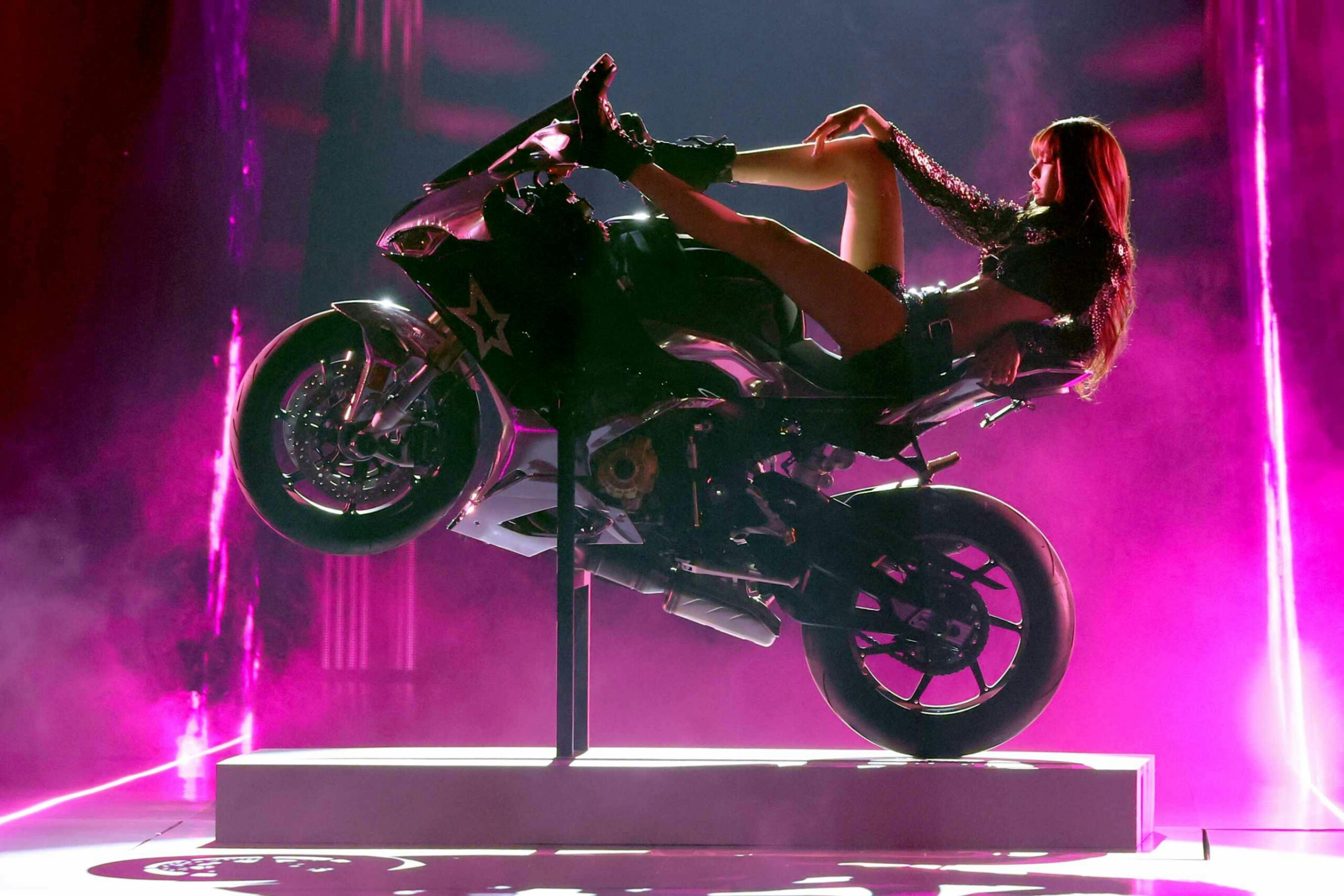
The spectacle of the runway show! It ain’t just pounding techno music and gaunt models clad in next season’s trends. A handful of luxury (and luxury-aping) labels are attempting to bend the catwalk to their will in a bid to twist the runway’s pedestaling effect to their own devices.
No longer solely the domain of next season’s clothes, the runway is now a landing strip for angels, puffer jackets, and souped-up luxury cars, all coincidentally debuting in near-sequential order.
The 2024 Victoria’s Secret runway show came first with an October 15 spectacle intended to cap the former mall brand’s rebrand. It was followed almost immediately by Moncler’s sprawling City of Genius showcase during Shanghai Fashion Week. Finally, the luxury car customizers at Brabus drove high-end automobiles down the catwalk on October 25 in a hedonistic spectacle that may as well have been directed by Philipp Plein.
As incidental as this runway trifecta was, it’s also convenient, because each spectacle individually demonstrates a desire to reframe the runway as a post-fashion proposition. Now, any brand can hold its own runway show, as if to scream, “We’ve arrived!”
Not that they were all terribly successful, mind you.
The Victoria’s Secret runway show, for instance, was broadly panned aside from some modest praise for returning models like Adriana Lima.
Though the show generated ample buzz and over 24 million views on YouTube, its muted reception feels like only another sign that VS has yet to join the mall brand renaissance.
Ostensibly intended to hoist the VS Angels back into the stratosphere, the runway instead pedestaled a notion of glamour so divisive that the YouTube video’s comments had to be turned off.
Meanwhile, Moncler’s City of Genius activation more than lived up to its name, demonstrating the canny business acumen that’s recently attracted big-time investors like LVMH.
The conventional runway show functioned as a springboard, exploding into a series of interactive installations, presentations, and attractions, equally populated by A-list Moncler collaborators like A$AP Rocky and NIGO and celebrities like Anne Hathaway.
This was a smart reconsideration of the runway’s purpose as tentpole moment, with Moncler gathering far-reaching talents as disparate as Jil Sander and Willow Smith into something bigger than fashion.
And then there’s Brabus.
Brabus is a nearly 50-year-old German company that provides aftermarket tuning (or modification) for high-end cars, pretty well-established in the automotive space but not as much within the broader cultural sphere.
As such, the late-October “Brabus Signature Night 2024” was a high-profile invite-only spectacle for the fans. While influencers like Bloody Osiris sat front-row, retooled G-Wagons, Rolls-Royces, and a massive motorhome drove down the catwalk, flanked by Brabus’ all-leather ready-to-wear collection, complete with bespoke Jeff Hamilton jacket.
It was an experiment in excess that equally impressed and irked automotive outlets who cover this sort of thing. From the fashion perspective, it felt as Plein as it did timely.
For better or worse (and many will say worse), runway shows have mutated from a spotlight for next season’s clothes to a platform for attention-grabbing stunts occasionally lost in pure indulgence.
As such, the Brabus presentation feels very now. In fact, all of these recent runways did.
Despite their inherent disparity, they all hinge on a few core tenets: That runway shows epitomize aspirational luxury, for instance, and that runway shows represent something epochal. There is before the runway and after the runway.
But in our cluttered omniculture, runway shows are just another one-off pageant. Relying on the runway to singularly deliver a notion of aspiration is merely wishful thinking, hence why VS and Brabus left only middling impressions. The runway giveth, the runway taketh away.
But with star power and showmanship, Moncler demonstrated that the runway can still act as a foundation for ingenuity, so long as the show itself isn’t the sole trick up one’s sleeve. Like, Moncler’s project wasn’t just flash — it was grounded by real-deal wearables and clever cosigns that authentically fleshed out an already expansive world.
Moncler leveraged the concept of the runway as an aperitif rather than the main course, amplifying the flavor of the latter. Now that’s some tasty runway revisionism.
